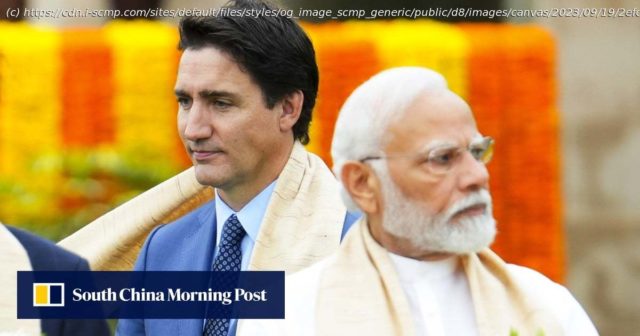The row between India and Canada over the killing of a Sikh separatist has been simmering for some time, according to analysts.
On Tuesday, New Delhi rejected as âabsurdâ accusations by Ottawa that Indian intelligence agents were involved in the June murder of Canadian man Hardeep Singh Nijjar in British Columbia.
Hours earlier, Canadian Prime Minister Justin Trudeau had told an emergency parliament session that his government had âcredible allegationsâ linking Indian agents to the death of Nijjar, an exiled Sikh leader. It was an âunacceptable violation of our sovereigntyâ, he said.
Nijjar had campaigned for an independent Sikh nation known as Khalistan, a movement that had rocked Indiaâs Punjab state in the 1980s and early 1990s. Today, the advocates are mostly among Punjabi overseas diaspora, many of whom are settled in Canada. India has often complained to Canadaâs government about the activities of Sikh hardliners.
Analysts say the warning signs for a potential deterioration in the bilateral relationship should have been heeded long ago.
âCanadian Prime Minister Trudeau has strong domestic reasons to raise the issue and so has India because of the Khalistan issue. There seems to be now a free fall in the relationship,â said Harsh Pant, a professor of international relations at Kingâs College London. âThe underlying issues have been there for a while and have not been resolved.â
C. Uday Bhaskar, director of New Delhi-based Society for Policy Studies, called the matter a âvery low point in bilateral relations [that] could have been avoidedâ.






